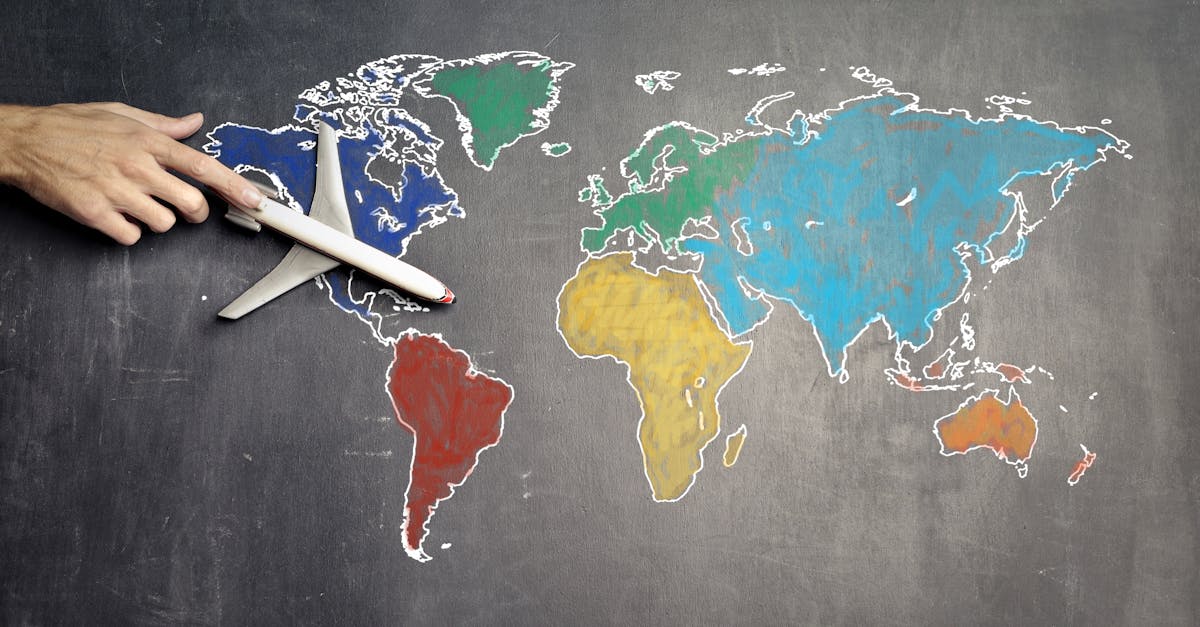
Table Of Contents
Impact of Technology on International Trade
The impact of technology on international trade is profound, revolutionizing the way businesses engage in global commerce. With the advancement of digital platforms, e-commerce has experienced exponential growth, enabling companies to reach customers worldwide with ease. This transformation has streamlined transactions and reduced barriers to entry for businesses of all sizes, fostering increased competition in the global marketplace.
Assisting with the formation of international business entities in an interconnected world, technology has enhanced logistics and supply chain management practices. Shipping and freight forwarding services have become more efficient and cost-effective, allowing products to move seamlessly across borders. Additionally, the integration of digital tools has facilitated real-time tracking and monitoring, ensuring greater visibility and control over the entire supply chain process.
Ecommerce and Digital Platforms
E-commerce and digital platforms have revolutionized the landscape of international business, enabling companies to expand their reach beyond borders and connect with a global customer base. These online avenues not only facilitate the buying and selling of products and services on a global scale but also play a crucial role in market penetration and brand building. Assisting with the formation of international business entities in today's interconnected world, e-commerce platforms provide a convenient and efficient channel for businesses to establish their presence in various markets and engage with customers worldwide.
Moreover, digital platforms have streamlined transactions and fostered greater transparency in international trade. With secure payment gateways and integrated logistics solutions, businesses can manage cross-border sales smoothly and provide customers with a seamless shopping experience. In addition, the ability to analyze consumer behavior and preferences through data analytics on these platforms empowers companies to tailor their marketing strategies and offerings to suit different cultural contexts, further enhancing their competitiveness in the global marketplace.
Logistics and Supply Chain Management in Global Operations
Logistics and supply chain management play a vital role in the seamless operation of global businesses. Coordinating the movement of goods, services, and information across various countries requires meticulous planning and execution. By efficiently managing the flow of products from the point of origin to the final destination, businesses can enhance their competitiveness and customer satisfaction on a global scale. Assisting with the formation of international business entities in today's interconnected world, logistics and supply chain management optimize processes, reduce costs, and mitigate risks associated with global operations.
The integration of technology in logistics and supply chain management has revolutionized the way businesses operate on a global scale. Leveraging advanced technologies such as artificial intelligence, blockchain, and Internet of Things (IoT) devices, companies can track shipments in real-time, predict demand fluctuations, and automate inventory management processes. These technological advancements not only streamline the supply chain but also foster transparency and collaboration among various stakeholders. Assisting with the formation of international business entities in this digital era, cutting-edge technologies empower organizations to adapt to dynamic market conditions and drive innovation in their global operations.
Shipping and Freight Forwarding Services
International business involves the movement of goods across borders, a process in which shipping and freight forwarding services play a crucial role. These services facilitate the transportation of products from one country to another, ensuring that goods reach their destination efficiently and on time. Shipping and freight forwarding companies manage the logistics of transporting goods, coordinating with various carriers and handling the necessary documentation for customs clearance.
Assisting with the formation of international business entities in the global marketplace, shipping and freight forwarding services help businesses navigate the complexities of international trade. By offering expertise in customs regulations, import/export requirements, and transportation logistics, these services enable companies to expand their operations beyond their domestic borders. They play a vital role in ensuring the smooth flow of goods between countries, contributing to the growth and success of businesses engaged in international trade.
Cultural Considerations in International Business
Cultural considerations play a crucial role in international business, influencing how companies interact with partners and customers across different regions. Understanding and respecting cultural nuances can lead to fruitful collaborations and successful business ventures. Assisting with the formation of international business entities in diverse cultural landscapes requires sensitivity and adaptability to local customs, communication styles, and business practices.
When navigating cultural considerations in international business, companies must prioritize cross-cultural communication and tailor their marketing strategies accordingly. Effective communication across borders is essential for building trust and fostering strong relationships with stakeholders from various cultural backgrounds. By recognizing and embracing cultural diversity, businesses can position themselves for long-term success and sustainable growth in the global marketplace. Assisting with the formation of international business entities in culturally diverse settings demands a keen awareness of the cultural factors at play and a strategic approach to bridging potential gaps.
CrossCultural Communication and Marketing Strategies
Cross-cultural communication and marketing strategies play a vital role in the success of businesses expanding internationally. Understanding the nuances of different cultures is crucial for effective communication and marketing campaigns in foreign markets. By tailoring messages to resonate with the values and preferences of diverse cultures, companies can build trust and establish strong relationships with potential customers. Assisting with the formation of international business entities in various countries involves not only linguistic translations but also adapting branding, visuals, and even product packaging to align with cultural preferences and sensitivities.
Moreover, cross-cultural communication strategies go beyond language barriers and also encompass non-verbal cues, such as body language, gestures, and interpersonal dynamics. In many cultures, these non-verbal cues carry as much significance as spoken words and can greatly influence business interactions. Developing a deep understanding of cultural norms and etiquettes can help businesses navigate negotiations, marketing efforts, and customer interactions more effectively. Assisting with the formation of international business entities in this regard involves not only training employees on cross-cultural communication but also fostering a culture of openness and adaptability within the organization to embrace diversity and inclusivity.
FAQS
What are the key entities involved in international business?
The key entities involved in international business include multinational corporations, government agencies, financial institutions, suppliers, distributors, customers, and international trade organizations.
How do multinational corporations play a role in international business?
Multinational corporations are major players in international business as they operate in multiple countries, engage in cross-border trade and investments, and contribute significantly to the global economy.
What role do government agencies play in international business?
Government agencies are involved in international business by setting trade policies, negotiating trade agreements, enforcing regulations, and providing support to businesses for international trade activities.
How do financial institutions support international business?
Financial institutions provide various services such as trade financing, foreign exchange services, investment banking, and risk management to facilitate international trade and investments.
What is the significance of international trade organizations in the context of international business?
International trade organizations, such as the World Trade Organization (WTO) and regional trade blocs like the European Union (EU), play a crucial role in setting trade rules, resolving disputes, and promoting trade liberalization among member countries.


